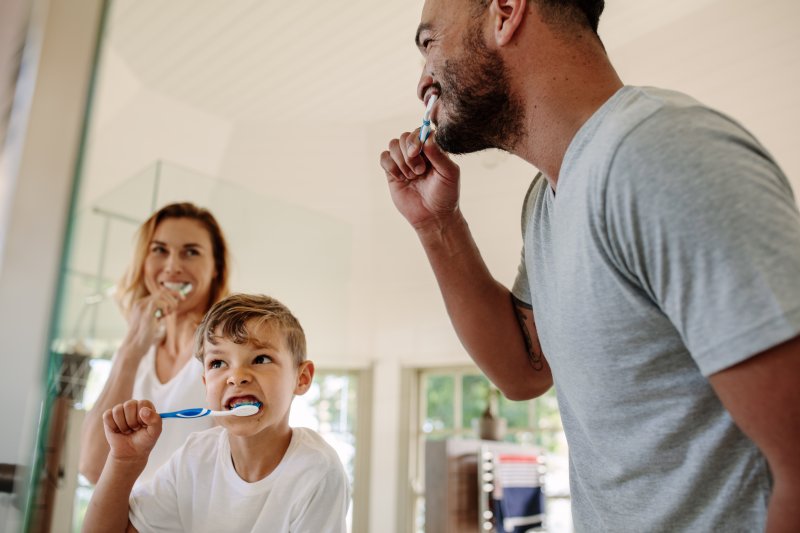
Getting your child to brush their teeth can be a challenge, but it’s deeply important for them to prevent oral health problems in the future. Thankfully, a new study published in Child Development might provide some important insight into how to motivate your child to brush. Researchers at the University of Pennsylvania, Yale University, and the Santa Fe Institute tried to gauge what factors contributed to children being able to complete menial tasks. They measured how long young children were able to brush their teeth, getting some interesting results about the role that praise played in their success. Here’s what they found.
The Study
Dental hygiene is important but not the most exciting activity, especially for children. For that reason, it was thought to be the perfect standard to measure kids’ ability to perform menial tasks. Eighty-one parents of three-year-olds recorded their children brushing their teeth each night. The researchers correlated the results with several factors including the parent’s mood, the amount of sleep the child had the night before, and what the parents said to their children.
The Results
As it turns out, the parent’s mood and the amount of sleep the child got had no strong correlation to how long they brushed. However, what the parents said to their children during the recording seemed to make a huge difference. Researchers took note of what the parents said, and whether it was praise, instruction, or distraction from the task at hand. It was found that the children who received praise from their parents, along with very little instruction or distraction, performed the best.
Limits of the Study
Like any study, the authors admit that there are potential issues with the results. First, the study didn’t establish any direct causal link between praise and toothbrushing. It’s possible that there are other factors associated with parental praise that contribute more to a child’s perseverance. The study also took place almost entirely in Pennsylvania, among mostly white high-income families. It’s therefore unclear whether the results carry over outside that narrow socio-economic environment. Finally, this study was done almost entirely during the pandemic, so that may have affected the relationship between parent and child at the time.
In any case, there is now some evidence to suggest that praising children contributes to their willingness to brush their teeth. That means a little bit of encouragement could make a huge difference in your child’s ability to form good habits in every part of their life.
About the Author
Dr. Ryne S. Paulson is an experienced pediatric dentist who loves to make children smile. His father served Casper, WY as a pediatric dentist for over thirty-five years, which is why Dr. Paulson is so honored to practice here. He knows that prevention is the best way to keep your child’s smile healthy, so he’ll use the most advanced dental technology there is to stop tooth decay. If you have any questions about how best to take care of your child’s teeth, Dr. Paulson can be reached at his website or by phone at (307) 266-1997.
